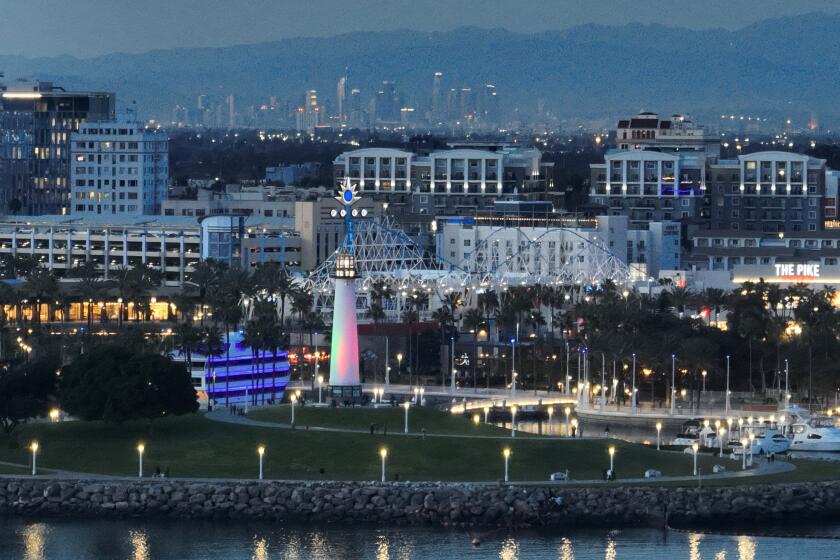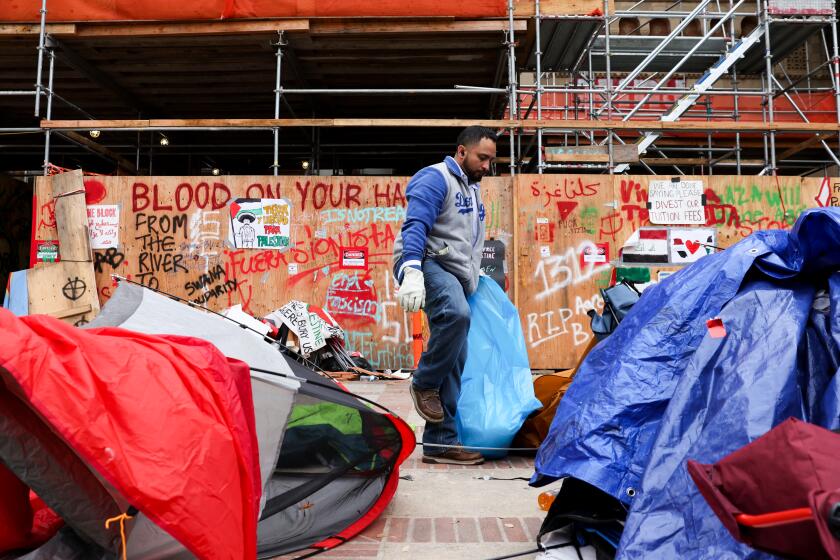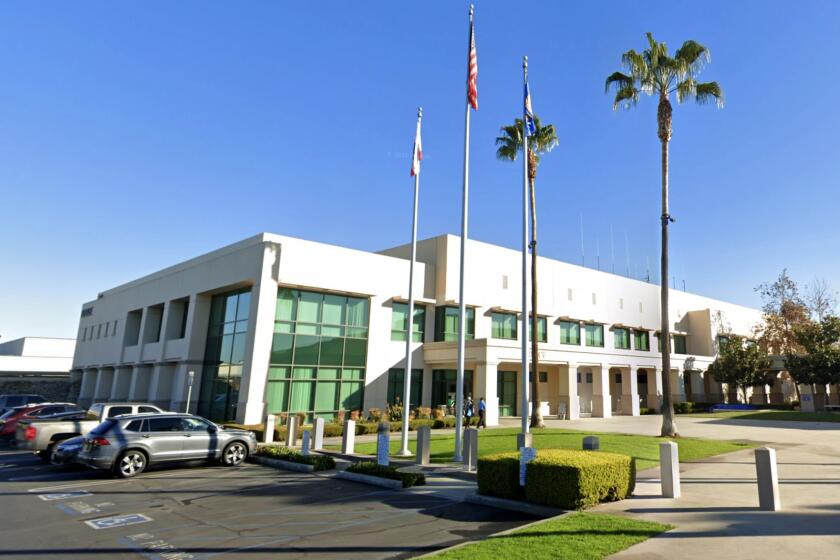ORANGE COUNTY VOICES : Election Expanded Political Diversity : Many county residents from Asia and the Pacific voted for the first time and elected candidates sharing their heritage.
Nov. 3, 1992 was a historic date for Asian-Pacific-Americans in Orange County. Historic because the first Vietnamese-American in the United States was elected? Historic because three Korean-Americans were elected? Historic because there were eight Asian-Pacific-American candidates for public office in Orange County? Yes, these are historic accomplishments.
But what is more historic, more notable, is the participation of Asian-Pacific-American citizens in the democratic process. Were Tony Lam, Ho Young Chung, Jay Kim and Julie Sa elected to represent Asian-Pacific-Americans exclusively? Of course not. They were elected to represent all people.
Will they help to build better bridges between government and Asian-Pacific-American communities? I certainly hope so.
The fact that they are first-generation immigrants to the United States is also notable. The fact that their candidacies mobilized, motivated, inspired and energized Asian-Pacific-American communities is notable. The fact that they were willing to be pioneers, to challenge those (even their own) who questioned whether Orange County was too xenophobic to elect them, is notable.
Was it necessary to have Asian-Pacific-American immigrant candidates in order to stimulate greater voter registration and participation of Asian-Pacific-Americans in the electoral process? Maybe.
Why?
Are Asian-Pacific-American immigrants apathetic voters? Not quite. What is most likely is that these new American citizens were never nurtured, instructed or encouraged on how to participate in a democracy. Consider the oppressive governments of Asian and Pacific Island countries in which one has never been allowed to vote or elections were fraught with fraud and deception.
I am a third-generation Japanese-American. English is my first language. (Spanish is my second language.) Yet when I ran for the school board in Santa Ana in 1987 I was asked (more than once), “But are you a citizen?” Would this question be asked of non-Asian-Pacific, non-Latino candidates for office?
Another question that was asked of me was, “You’re Asian; how can you represent the large numbers of Hispanic students in Santa Ana?” But this is America--a country where almost anything is possible. A Japanese-American can serve on a school board representing a student body that is 85% Latino. A Korean immigrant/naturalized citizen (Kim) can go to Washington, D.C., as a congressman representing a district that is probably 85% white.
What does all of this mean for the future? My guess is that we’ll see more Asian-Pacific-American candidates running for a variety of offices--and more naturalized citizens becoming registered voters and voting. This last distinction is important because many naturalized citizens register to vote but have never voted in an election--until now.
I, for one, certainly hope that this prediction is borne out. The victories of Lam, Chung, Kim and Sa should serve as encouragement for other Asian-Pacific-Americans to participate in the political process.
As an Asian-Pacific-American, I am proud of the accomplishments of these individuals, regardless of their party affiliation. Why? Because even in Orange County, we can always serve to be reminded that this is America: a country that is open to and supportive of diversity in its citizens as well as diversity in its leaders.
More to Read
Start your day right
Sign up for Essential California for news, features and recommendations from the L.A. Times and beyond in your inbox six days a week.
You may occasionally receive promotional content from the Los Angeles Times.






